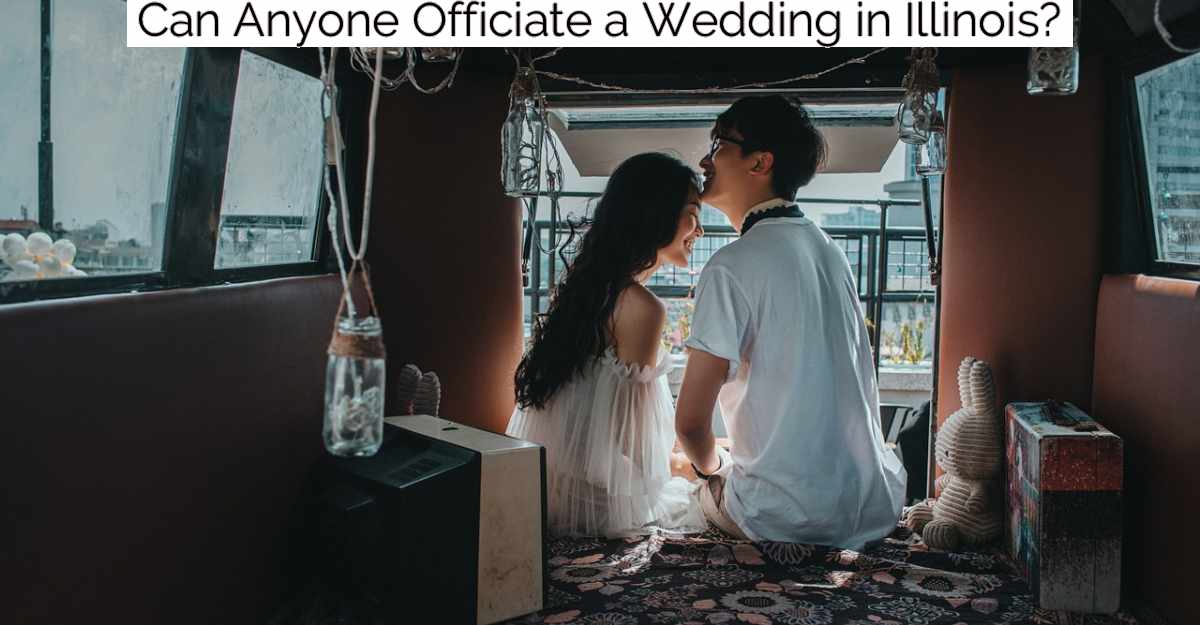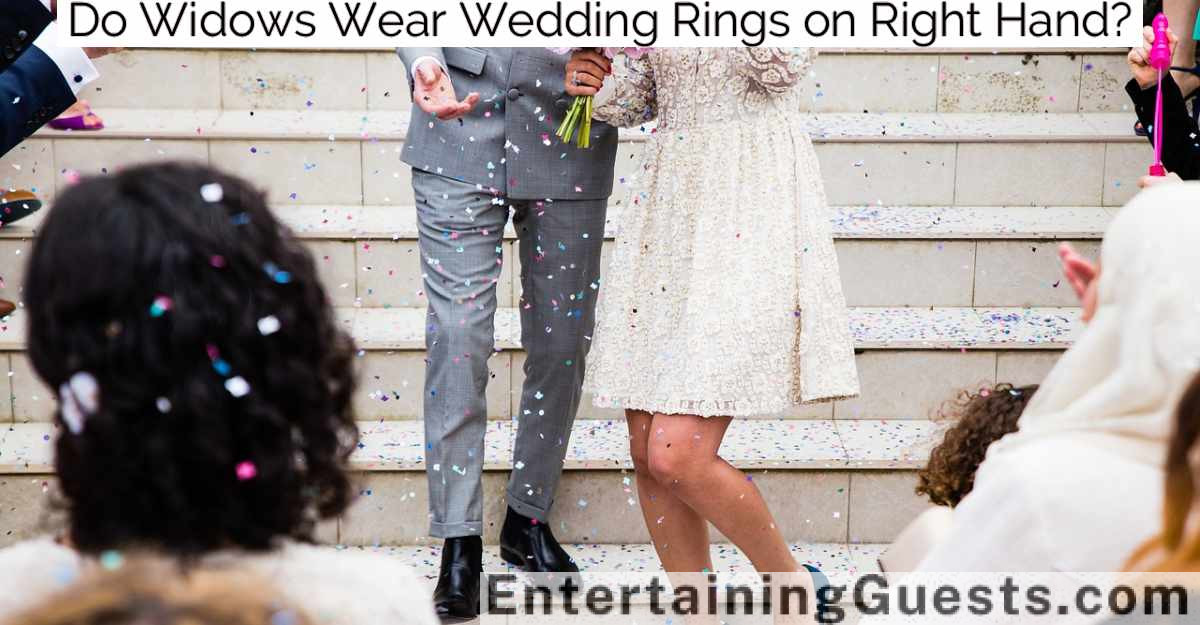No, in Illinois, not just anyone can officiate a wedding; they must fulfill specific legal requirements. Authorized officiants include ordained ministers, priests, rabbis, and certain public officials such as judges and mayors. Prospective officiants must be affiliated with a recognized religious organization or obtain government certification, and they are usually required to register with the county clerk where the wedding will take place. An official documentation, like a ministry or ordination certificate, is also essential. Following these steps is crucial to ensure the legality of the marriage and uphold the integrity of the ceremony. Further exploration of the regulations governing weddings in Illinois will uncover more detailed information.
Understanding Illinois Marriage Laws
Navigating through Illinois marriage laws is essential for anyone planning to officiate a wedding in the state. The legal framework mandates specific requirements and procedures that must be followed to ensure the validity of the marriage. Firstly, the couple must obtain a marriage license from the county clerk’s office in the county where the marriage will take place. This license is valid for 60 days and there’s typically a 24-hour waiting period before the ceremony can legally proceed.
Additionally, the law stipulates that the marriage ceremony must be conducted in the presence of at least two witnesses, who are 18 years or older. This requirement is crucial for the legal validation of the marriage. The witnesses must observe the couple’s consent and signing of the marriage license, tasks often overseen by the officiant.
It’s also important to note that the marriage license, once signed, needs to be returned to the county clerk’s office by the officiant. The failure to do so within the stipulated time frame, usually within 10 days after the wedding, can result in legal complications for the married couple. Thus, understanding and adhering to these regulations is vital for a legally binding marriage in Illinois.
Who Can Legally Officiate?
In Illinois, a variety of individuals are authorized to perform wedding ceremonies, ranging from religious figures to public officials. Specifically, ordained ministers, priests, rabbis, and other designated leaders of any religious denomination can officiate weddings. They’re joined by public officials such as judges, county clerks, and certain court officials, who can also legally solemnize marriages.
Furthermore, Illinois recognizes the role of public officials who’ve retired from their positions, such as judges or magistrates, provided they were in good standing at the time of retirement. This inclusion ensures that experienced individuals can continue to contribute to the community by officiating weddings.
The state also extends the ability to solemnize marriages to elected officials, specifically including mayors and village presidents within their jurisdictions. This local touch adds a personal element to ceremonies, reflecting the community’s identity.
It’s important to note that these officials must adhere to state laws regarding the solemnization of marriage, which ensures that all ceremonies are conducted with legal authority and respect for personal beliefs and traditions. This legal framework supports a diverse array of options for couples, ensuring that their special day aligns with both their personal and spiritual preferences.
Steps to Become an Officiant
Understanding who can officiate a wedding in Illinois sets the stage for those interested in becoming officiants themselves. To embark on this path, one must first determine their eligibility under state law, which generally includes being part of a religious organization or obtaining a government-issued credential.
The initial step involves researching and aligning with an organization that matches the prospective officiant’s beliefs and values. It’s crucial they verify the organization’s standing in Illinois to ensure it’s recognized by the state. Once affiliated, they often need to complete specific training or courses provided by the organization, focusing on the legal and ceremonial aspects of officiating a wedding.
Next, the candidate must apply for ordination or a similar credential through their chosen organization. This process varies significantly between different groups—some might offer instant ordination online, while others require a more rigorous assessment of qualifications and character.
After securing ordination, the final step is to familiarize oneself with the marriage laws in Illinois. Understanding these regulations ensures that the officiant can conduct weddings that are not only meaningful but also legally binding. This knowledge is pivotal in guiding couples through their vows and ensuring that all legal standards are met.
Required Documentation and Forms
Once you’ve secured your ordination, gathering the necessary documents and forms becomes your next critical step. In Illinois, officiants must ensure they have all the required legal paperwork to perform a marriage legally and effectively. This typically includes registering with the county clerk where the wedding will take place. Officiants should contact the specific county clerk’s office to confirm any local requirements, as these can vary.
The primary document needed is the officiant’s credential of ministry or ordination certificate, which confirms their legal standing to officiate weddings. Additionally, some counties may require officiants to file a credentials record, such as a "Letter of Good Standing" from the ordaining body. It’s crucial to obtain these documents well in advance of the ceremony to avoid any complications.
Officiants should also familiarize themselves with the marriage license application process in Illinois. They need to ensure that the couple has obtained their marriage license from the county clerk’s office. After the ceremony, the officiant is responsible for completing and signing the marriage license, alongside the couple and any required witnesses, and returning it to the county clerk’s office within the specified timeframe to validate the marriage officially.
Common Mistakes to Avoid
Navigating the nuances of wedding officiation, particularly in Illinois, requires careful attention to detail to avoid common pitfalls. One major error is neglecting to verify the officiant’s legal standing. In Illinois, not everyone can officiate a wedding; they must be legally recognized to do so. This includes being an ordained minister or obtaining a one-day officiant status from a recognized entity. Officiants and couples often mistakenly assume any online ordination suffices, which isn’t always the case.
Another frequent blunder is failing to adhere to the specific documentation required by the state. Illinois mandates that officiants submit the marriage license to the appropriate county clerk’s office within 10 days post-ceremony. Overlooking this timeframe can result in the marriage being considered invalid.
It’s also crucial for officiants to communicate clearly with the couple about the ceremony’s structure. Misunderstandings here can lead to a ceremony that doesn’t reflect the couple’s wishes or, worse, fails to meet legal standards. Ensuring all parties’ expectations and roles are clear before the wedding day will help prevent these issues and contribute to a smooth, memorable occasion.
Frequently Asked Questions
Are Online Ordinations Recognized for Officiating Weddings in Illinois?
In Illinois, online ordinations are indeed recognized, allowing individuals to officiate weddings legally. This empowers those ordained via the internet to perform ceremonies across the state, adhering to specific legal and organizational guidelines.
Can a Friend Officiate My Wedding if They’re Not a Resident of Illinois?
Yes, a friend can officiate your wedding in Illinois even if they’re not a resident, as long as they obtain proper authorization, such as an online ordination, which Illinois recognizes for wedding ceremonies.
What Are the Consequences of an Improperly Officiated Wedding?
If a wedding’s officiated improperly, the marriage may be invalid. Couples might face legal uncertainties regarding property, inheritance, and parental rights, necessitating a correct redo of the ceremony to ensure legal compliance.
Can Someone Officiate a Wedding Remotely via Video Call in Illinois?
In Illinois, someone can’t officiate a wedding remotely via video call. State laws require the officiant to be physically present at the ceremony to ensure the wedding’s legal validity.
Do Officiants Need to Renew Their Authorization Periodically in Illinois?
In Illinois, officiants don’t need to renew their authorization periodically. Once they’re legally recognized to perform marriages, they can continue without renewal, ensuring they adhere to any changes in state marriage laws.
Conclusion
In conclusion, anyone seeking to officiate a wedding in Illinois must thoroughly understand the state’s marriage laws. It’s crucial to follow the correct steps to become a recognized officiant, ensure all necessary documentation is properly completed, and avoid common pitfalls that could invalidate the ceremony. By adhering to these guidelines, officiants can confidently contribute to a legally binding and memorable wedding experience for the couples they serve.







